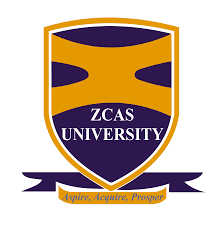There are a variety of reasons why straight-A high school students may struggle in college. Some possible reasons include difficulty adjusting to the increased academic and social demands of college, lack of motivation or interest in their chosen field of study, personal or family issues that distract from academic performance, or simply feeling overwhelmed by the increased workload and expectations.
It's important to remember that success in secondary school/high school does not always guarantee success in college any more than success in university guarantees success in your career. What is important is to develop good habits and seek support when needed in order to succeed in higher education. As people progress through stages of learning it is important to develop a 'growth mindset' where challenges are seen as opportunities to onboard new skills and abilities or to improve on existing ones. The change from school into higher education can come as a shock in terms of the quantity and quality of support students receive.
Higher education can be an exciting and rewarding experience. But on the other side of independence and autonomy are a number of challenges for students. Some of the most common challenges that students face in college include:
- Time management: College coursework often requires more time and effort than high school classes, and students may struggle to balance their academic responsibilities with work, extracurricular activities, and social life.
- Academic expectations: College courses are often more challenging and rigorous than high school classes, and students may struggle to adjust to the higher level of academic expectations.
- Financial pressures: College can be expensive, and many students struggle to pay for tuition, room and board, textbooks, and other expenses.
- Homesickness: Many students experience homesickness and miss their families and friends from home, especially during their first year of college.
- Social adjustment: College can be a big adjustment socially, and students may struggle to make new friends or feel like they fit in.
- Mental health: College can be a stressful and overwhelming time, and many students experience anxiety, depression, or other mental health issues.
Students are told that by recognizing these common challenges and seeking out support when needed, they can overcome these obstacles and thrive in college/University. It appears to give a student more freedom than ever, but that also imposes the greatest time-management challenge of a young persons life. So staying active, engaged, organised and happy adds to the academic challenges of not knowing how to study at a higher level with less active support from the academic institutions.
The responsibility to help students transition from life in school to life in higher education is often a second priority for schools preparing students academically for their chosen fields. Higher education institutions on the other hand have their own challenges in administrating onboarding and induction for a wide range of students and backgrounds making it almost impossible to have a one-size-fits-all. Now that educational technology has come into its own in the classroom it makes sense for higher education institutions to start looking at ways to improve the wider student experience from applicant to alumni.


.png?length=300&name=unnamed%20(11).png)
.png?length=300&name=unnamed%20(7).png)
.png?length=300&name=unnamed%20(8).png)
.png?length=300&name=unnamed%20(6).png)

.png?length=300&name=unnamed%20(10).png)
.png?length=300&name=unnamed%20(5).png)
.png?length=300&name=unnamed%20(9).png)
.png?length=300&name=unnamed%20(4).png)
.png?length=300&name=unnamed%20(2).png)
.png?length=300&name=unnamed%20(1).png)
.png?length=300&name=unnamed%20(3).png)
.jpg?length=300&name=unnamed%20(2).jpg)





.png?length=300&name=loughborough-university-logo%20(small).png)





